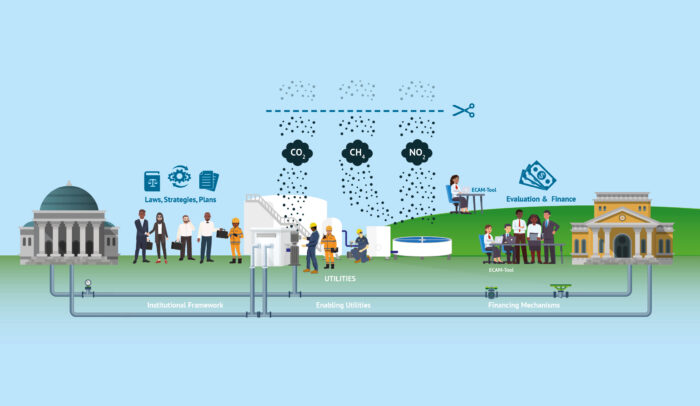Due to the global challenges posed by climate change, most water and wastewater utilities have confirmed that planning is key to preparing for the future. Therefore, climate risk plans represent a fundamental tool for supporting utilities in preparing for the risks to which their infrastructure is exposed, to reducing their vulnerability and to contributing to the economic, social and environmental sustainability of water supply and wastewater services.
For this reason, the “Support Guide for the Development of Climate Risk Management Plans for Water and Wastewater Operating Organisations (O.O.) in Mexico” is designed to provide O.O.’s with the necessary information to start the process of developing a Climate Change Management Plan.
The Public Infrastructure Engineering Infrastructure Vulnerability Committee Protocol (PIEVC), a useful tool for assessing infrastructure vulnerability and adaptation to a changing climate, was used in the development of this guide. The PIEVC Protocol is internationally recognised as a practical and reliable approach for assessing the vulnerability of infrastructure to the potential impacts of climate change. The Deutsche Gesellschaft für Internationale Zusammenarbeit (GIZ) GmbH, in partnership with the Climate Risk Institute (CRI), leads the international component of the PIEVC Programme (see PIEVC International).
Due to the increasing effects of climate change, the development of a Climate Risk Management Plan is essential for the sustainable operations of O.O.s. This guide provides the procedural knowledge necessary for O.Os to assess their circumstances, seek assistance and plan through the development of a Climate Change Risk Management Plan.

